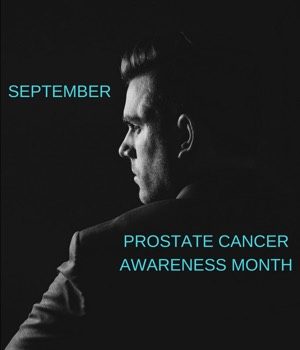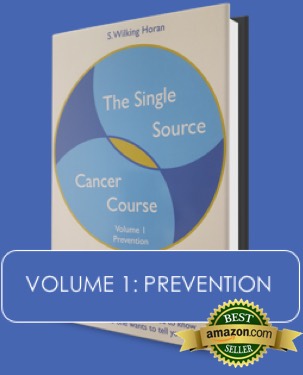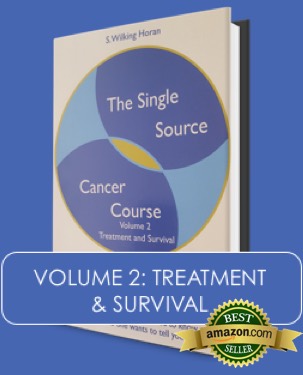 PROSTATE CANCER – THE RISKS AND SYMPTOMS
PROSTATE CANCER – THE RISKS AND SYMPTOMS
Hello everyone and welcome back to another #Wellness Wednesday. It’s September – a month that’s often associated with PROSTATE CANCER AWARENESS. You see, one out of every seven men will be diagnosed with prostate cancer during their lifetime. And, the numbers go up as men age. For example, of those men who live to be eighty, 80 percent will be diagnosed with this cancer. In fact, it is the second most commonly diagnosed cancer in men the world over.
The good news, however, is that while prostate cancer is common and serious — it is a cancer from which most men will recover and successfully survive.
And, the key to surviving prostate cancer is the same as it is for most other cancers — Early Detection. This one thing will make all the difference in the world when recovering from and successfully surviving cancer.
But, in order to detect a problem early we need to understand what our personal risk is for a particular cancer and what the symptoms are for the cancer.
So, let’s get started with 4 BASIC RISK FACTORS for PROSTATE CANCER:
- AGE. Of course, age is a predominant risk for developing prostate cancer. And, this is true of most cancers. Sixty-five percent of prostate cancers typically are diagnosed in men over the age of sixty. The average age of a prostate cancer patient is around 70. And, the risk only increases as men grow older.
- ETHNICITY. Studies are consistent in finding that African American men are more likely to develop prostate cancer than Caucasian men. And, these studies also indicate that prostate cancer in African American men is likely to be more serious and without early detection, it’s more likely to be terminal.
- FAMILY HISTORY. This cannot be stressed enough. Heredity and Genetics play an extremely important part in the development of cancer. Men who have a first-degree relative (father, sibling or child) who was diagnosed with prostate cancer before the age of 65 are twice as likely to develop this cancer than other men. When a cancer is diagnosed earlier than the average age, it may indicate a genetic anomaly that must be monitored. And, it’s been estimated that 5 to 10 percent of all prostate cancers are linked to a family predisposition for the disease.
- LIFESTYLE. This is an important issue for any cancer. The development of most cancers can be influenced by inadequate exercise and poor diet. The misuse of alcohol and the use of tobacco products also will contribute to the development of many cancers, including prostate cancer.
Now that we know the risk factors of prostate cancer, let’s review 4 COMMON SYMPTOMS:
- INABILITY TO ACHIEVE AN ERECTION. Problems in bed. Every man experiences them from time to time. But, if this inability continues for any length of time it could indicate a more serious problem, including prostate cancer.
- PAINFUL EJACULATION. There may not be a problem in achieving an erection, but if there is pain in ejaculation prostate cancer may be indicated.
- BLOOD IN URINE OR SEMEN. The presence of blood can be due to other less serious conditions. But, if this symptom persists one should always be examined for the presence of prostate cancer.
- CHANGES IN URINATION. This includes a change in the frequency or urgency of urination. It also includes a slow flow or hesitancy in urination.
And, there we are Gentlemen. Understanding your risk factors and knowing the most common symptoms associated with prostate cancer will enable you to take a proactive approach to your personal healthcare. Remember, these symptoms may indicate other less serious conditions. But, always contact your primary care physician and make sure you know what you’re dealing with. Because, in Cancer Care Early Detection is one of our best defenses.
DON’T BE SURPRISED – BE PREPARED!
Thanks again for joining me everyone – Until next time stay in GOOD HEALTH and . . .
TAKE THE COURSE AND TAKE CHARGE!



Leave a Comment